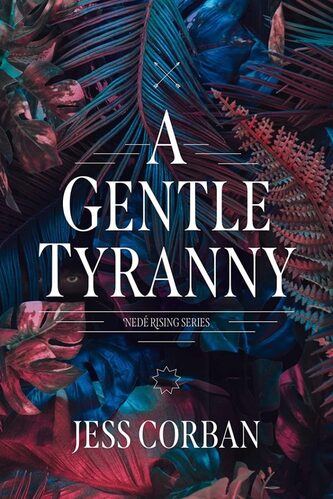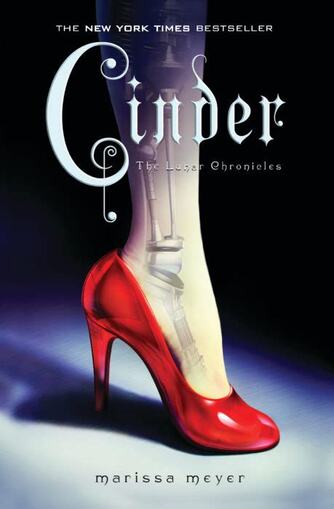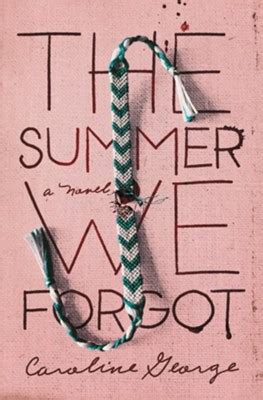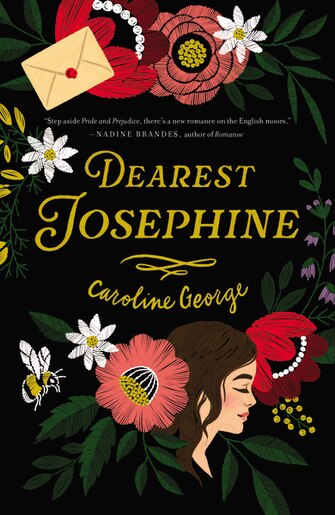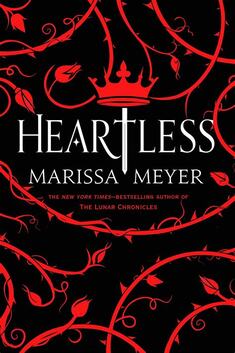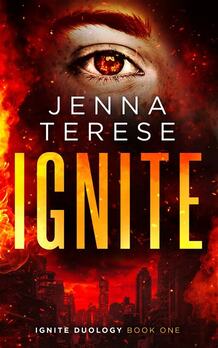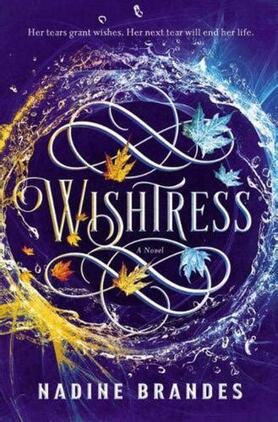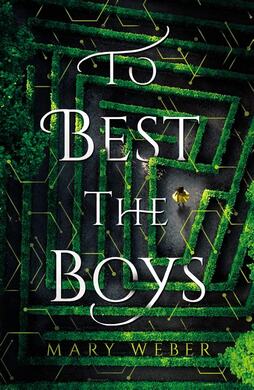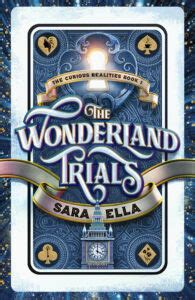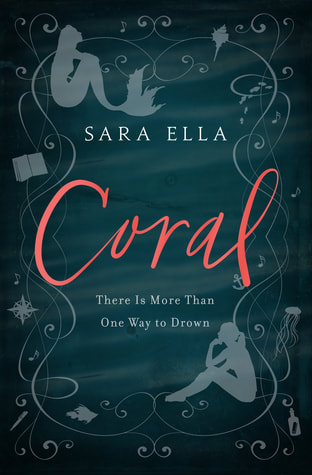|
Summary What if women unraveled the evils of patriarchy? With men safely "gentled" in a worldwide Liberation, the matriarchy of Nedé has risen from the ashes. Seventeen-year-old Reina Pierce has never given a thought to the Brutes of old. Itching to escape her mother's finca--and desperate to keep her training and forbidden friendship a secret--her greatest worry is which Destiny she'll choose on her next birthday. But when she's selected as a candidate for the Succession instead, competing to become Nedé's ninth Matriarch, she discovers their Eden has come at a cost she's not sure she's willing to pay. Jess Corban's debut novel presents a new twist to the dystopian genre, delivering heart-pounding action, thought-provoking revelations, and a setting as lush as the jungles of Central America. Positives I’m not sure how I feel about these books. And that’s why I admire it. This book tackles ideas of gender, women’s rights, femininity, and sexism in a unique and fresh way. Using a compelling plot and high stakes, it kept me turning pages. Her characters had to make hard decisions—decisions that made my stomach sink at times. And in them making those hard decisions, I was forced to think through some as well. I’m not sure I agree with everything in this allegory. Sometimes I’d nod my head. Sometimes I’d say no. A lot of the time I’d think hard. In some ways, it didn’t feel quite sensitive enough to women who have been horrifically abused, even though it’s clear Jess Corban put a lot of effort into it. The allegory can tip towards the preachy side at times, as well. I would have liked to see it tackled with more sensitivity and subtlety; I believe that would have made it a more powerful read. These books won’t be for everyone, but I would still recommend giving them a read. Even if you disagree, it may help you think through your own beliefs and identity in a new way. Also, points for the Central American representation! It was a fresh new take on a dystopian setting. Negatives As mentioned above, these books won’t be for everyone, but I would hope they wouldn’t dismiss or shame them just because of a difference in perspective. Conclusion Nede Rising isn’t for everyone. Some will agree, some will disagree. I’m not sure where I fall on the spectrum myself. But that’s why these books are important, because they force us to think and make the hard decisions. While some sensitivity may be lacking, it’s clear the author worked hard and cared enough to touch the hard things of being a woman. And that’s worth celebrating.
0 Comments
Summary Humans and androids crowd the raucous streets of New Beijing. A deadly plague ravages the population. From space, a ruthless lunar people watch, waiting to make their move. No one knows that Earth's fate hinges on one girl. . . . Cinder, a gifted mechanic, is a cyborg. She's a second-class citizen with a mysterious past, reviled by her stepmother and blamed for her stepsister's illness. But when her life becomes intertwined with the handsome Prince Kai's, she suddenly finds herself at the center of an intergalactic struggle, and a forbidden attraction. Caught between duty and freedom, loyalty and betrayal, she must uncover secrets about her past in order to protect her world's future. With high-stakes action and a smart, resourceful heroine, Cinder is a Cinderella retelling that is at once classic and strikingly original. Positives I was skeptical about this book. I had read her book Heartless and adored it, but that was more of a straight fantasy. I’m not much of a sci-fi gal, and I knew this story would be a gamble. Luckily, I got it for a couple bucks at a bookstore due to a damaged cover. And it made it into the bag when I needed a book for a dogsitting trip. I’m so glad it did. The worldbuilding blows my mind. I haven’t read many books steeped in Asian culture, so this one was both a breath of fresh air and a lovely bit of representation. The twists on the old Cinderella tale are so clever, sometimes I didn’t even quite realize it until it had passed. I gathered up every little detail I could, trying to predict the path ahead, only for Marissa Meyer to turn it on its head in the most glorious way. Cinder herself was not at all what I expected, but deeply relatable. She tries to be tough and brusque on the outside to hide a girl who desperately wants someone, anyone to love and notice her. The themes in this book, speaking to the question “am I worthy?” are heartachingly beautiful. This was one of those books that wouldn't let me forget why I love reading. I was so absorbed in the story. Negatives There are three easily censored pieces of language in this book. Please note that while this is not a Christian book, it is a clean wholesome book. Conclusion Cinder gathers up the greasy mismatched parts of the old Cinderella tale, dumps them on a table, and begins to build. Manufacturing a few pieces of clever Eastern representation and heartaching questions of worth, it builds something no one has ever seen before—and in the process, creates an immersive story, the old-fashioned kind that pulls you in till pages’ end. Summary Some memories are better left forgotten. Darby and Morgan haven’t spoken for two years, and their friend group has splintered. But when the body of their former science teacher is found in the marsh where they attended camp that summer, they realize they have more questions than answers . . . and even fewer memories. No one remembers—or no one is talking. The group of reunited friends suspects that a murderer is stalking the coastal highway 30A, and they are desperate to recover their memories as quickly as possible . . . before their history they can’t remember repeats itself. Everyone has a secret. As tensions rise and time runs out, Darby and Morgan begin to wonder if they can believe one another . . . or if they can even trust themselves. Positives OH. MY. GOODNESS. Look out, we have a new favorite book coming through. This book is brilliant. It channels the vibes perfectly. The setting is so vivid and real, I could picture it immediately even though I live in the country of Indiana and have never been to Florida ever in my life. The book expertly gives us a group of flawed teens who make huge mistakes and bad choices. Teens that anyone, any age can relate to, because we’ve all made huge mistakes and bad choices. It has a beautiful message hidden in the dark waters, reminding us all that no matter what we’ve done or been done to us, we get to choose where we go from here. But the real killer here is the plot. (Yep. I just made that joke.) When I told my sister the premise of the book, she teasingly guessed what the twist would be. I laughed and said, no, that was way too out there, that couldn’t be the answer. IT WAS. I didn’t see the twist or the culprit coming from ANYWHERE. This is the sort of book that made me want to immediately read it again to figure out what I missed. Honestly, from the prose to the plot to the characters, this is the kind of book I aspire to write. I definitely will be returning to it again and again, not just to read, but also to study and learn from. It’s that good. And much to my despair, her next book, which looks equally amazing, doesn’t come out until September. Negatives This book does have two instances of mild language, along with several words of that weird sort that aren’t language but aren’t really polite either. While I whited out the two language instances, none of the other words were enough to worry me. The teens in this book do make some poor choices, for both good and bad reasons, and sometimes get away with it. I never got the vibe that the story was saying “well, they were solving a murder, so it’s okay” but some readers may want to be aware of the lack of consequences portrayed. Conclusion The Summer We Forgot is exactly the opposite. You can’t forget this book, even if you tried. And why would you want to? Summary Love arrives at the most unexpected time . . . 1821: Elias Roch has ghastly luck with women. He met Josephine De Clare once and penned dozens of letters hoping to find her again. 2021: Josie De Clare has questionable taste in boyfriends. The last one nearly ruined her friendship with her best friend. Now, in the wake of her father's death, Josie finds Elias's letters. Suddenly she's falling in love with a guy who lived two hundred years ago. And star-crossed doesn't even begin to cover it . . . Positives Okay. So you probably know romance isn’t really my field of expertise. But this is one of the best romance books I’ve ever read. It’s just so bizarre and weird that I couldn’t help it. I had to know what the explanation was. How did Elias know Josie? And how would their seemingly doomed romance work out? Once you start reading this, you can’t not finish. For the record, I got a late start on my Saturday projects because I had to finish this book. Also, Oliver is wonderful. I think everybody needs an Oliver in their life, and if you don’t believe me, well, I’ll check in with you at the end of the book. This book excellently portrayed an emotional male character—Elias. This is so rarely done well, or done at all, but this book did both. It’s neat because while you relate with both Elias and Josie, you also relate with their friends when they start to worry that they’re in too deep. This book has such a feel to it. You can feel the London culture and English moors with Josie, and when it switches to Elias, you literally feel like you’re reading a Jane Austen novel. So much is left to the imagination in this story, and it is wonderful. But the book isn’t just about romance. It makes it very clear that it’s about something deeper, something that fuels the truest of loves here on earth. (Psst. It’s a Someone.) Negatives The initials “omg” are used frequently in Josie and Faith’s correspondence. It is not made clear whether that “g” stands for God’s name or something like gosh or goodness. I guess you can take it any way you like. Which is nice. Conclusion Dearest Josephine isn’t your average romance. It breaks just about every cliché out there and writes something truly beautiful and memorable. Summary Long before she was the terror of Wonderland, she was just a girl who wanted to fall in love. Catherine may be one of the most desired girls in Wonderland, and a favorite of the unmarried King of Hearts, but her interests lie elsewhere. A talented baker, all she wants is to open a shop with her best friend. But according to her mother, such a goal is unthinkable for the young woman who could be the next queen. Then Cath meets Jest, the handsome and mysterious court joker. For the first time, she feels the pull of true attraction. At the risk of offending the king and infuriating her parents, she and Jest enter into an intense, secret courtship. Cath is determined to define her own destiny and fall in love on her terms. But in a land thriving with magic, madness, and monsters, fate has other plans. Positives It’s rare for the actual writing to grab me quite like this. I was so immersed in Cath’s head. Every comparison sounded so natural, exactly the way that she would describe it or see things. The prose was top notch. Some of the plot twists were a bit easy to figure out, but I think that worked to the book's benefit. Rather than shocking me when the truth came out, it built that suspense and yes, a little bit of dread as I waited for the truth to be revealed in all its monstrosity. I have read very few negative-arc stories before, so I was very curious going into this one. Mainly because Marissa Meyer did such a good job getting me into Cath’s head, I almost didn’t realize what was happening. Until halfway through the book I suddenly jerked to attention and realized how selfish Cath was being. Looking back, I could trace the slow evolution all the way back to the beginning. No good person in this story is completely good. And no bad person is completely bad. Even Jest (who next to Mary Ann was probably the most noble character in the story) has his undeniably selfish moments. Jest and Cath are brilliantly contrasted to each other. We watch Jest struggle to overcome his selfish tendencies, even though he certainly slips up at times. Meanwhile, we watch Cath become more and more consumed with what she wants, what she thinks will make her happy. And when she is unable to get it, she blames those around her—some justly, but eventually more and more unjustly—for her unhappiness. It balanced this all perfectly with my sympathy to Cath, hoping that the likable girl from chapter one would somehow open her eyes and avoid her inevitable end. Was any of this Cath’s fault at all? Was it those who made her so miserable—her abusive parents, for starters? Or was it her own subtle selfishness? Heartless forced me to consider my own life and where I might be more like Cath than I’d like to think. A negative-arc story, while not always quite as enjoyable to read, has a unique power in that sense. One more quick note before I move on is that this book brilliantly handles the topic of body-shaming and food-shaming. While it may not offer much of a happy ending for those who struggle with it, it does illustrate how hurtful these words (and other words) can be, an important and timeless thing to hear. Negatives This is a negative-arc story, otherwise known as a tragedy. You have been warned. Please also note that while it is clean, this is also not an explicitly Christian book, although it does have healthy messages. Conclusion Heartless is a tragic tale, one that might prove too bitter to swallow. But if you stop and savor a while, you might be subjected to some interesting flavors you wouldn’t have encountered otherwise. Summary What if superhumans weren't considered heroes? When Scarlett Marley is attacked by an illegal super with fire powers, she doesn’t get burned, but now she has a fire-like glow flickering in her eyes. With superpowers criminalized, she has no choice but to turn herself over to the Superhuman Containment Facility, or risk hurting everyone she loves. Her normal life seems lost forever, until she is selected to be one of the first to receive the experimental cure to destroy her powers. In exchange, she must first complete one mission: Infiltrate and capture one of the largest gangs of supers in the remains of once-great Rapid City. With the cure and all her future at stake, Scarlett is prepared to do whatever it takes to bring these criminals to justice so she can return to her family. But this gang and their leader, Rez, aren’t what everyone says, and Scarlett begins to question everything she was ever told about the SCF and the fire flowing in her veins. The cure is her only hope for returning her life to what it was before, but is that life worth returning to after all? Positives On a not really positive or negative note, the book is very differently paced than what I was expecting. It is marketed to appeal to fans of the MCU films, and while it does, it is a much more slow and thoughtful ride. While a Marvel film can be very thoughtful, Ignite is much less focused on the action and more focused on inter-character relationships and what’s going on inside their heads. While as I’ll mention below, sometimes that thoughtfulness took up a lot of page time, I can’t really blame it. The different characters and their motivations are so well thought out, it’s incredible. They react in unexpected ways that still make perfect sense with where they’re coming from. Ares was my favorite character, hands down. While ultimately, the author decided he was not the right character to tell this story, I would have loved to see a version of this story from his perspective. His conflict with his father seems like it could be rife with potential. The conflict with superhumans not being seen as “people” also has a lot of potential to become a powerful allegory for modern judgements and prejudices as well. It was unpacked very thoughtfully in this installment, and I’m looking forward to seeing how it unfolds. Negatives Some of the scenes did get to feeling repetitive. There were quite a few scenes of them going for their “recess” at the compound. While these did become important at the end of the story, it took quite a few repetitions to get there. Other events did seem to have the same things happening over and over again. We also spent a lot of time in Scarlett’s head. I get that we were supposed to, she’s the main character. But there was a lot of time where she was just thinking and nothing else was happening in the scene. That is the one and only weakness I could find with this book—just a few too many “filler” scenes without much happening. Conclusion Ignite is a different installment in the superhero genre. One where perhaps we slow down and think more than rush into battle. And that’s okay. Summary Her tears grant wishes. Her next tear will end her life. She didn’t ask to be the Wishtress. Myrthe was born with the ability to turn her tears into wishes. But when a granted wish goes wrong, she is cursed: the next tear she sheds will kill her. She must travel to the Well to break the curse before it can claim her life—and before the king’s militairen find her. To survive the journey, Myrthe must harden her heart to keep herself from crying even a single tear. He can stop time with a snap of his fingers. Bastiaan’s powerful—and rare—Talent came in handy when he kidnapped the old king. Now the new king has a job for him: find the Wishtress and deliver her to the schloss. But Bastiaan needs a wish of his own. He gains Myrthe’s trust by promising to take her to the Well, but once he gets what he needs, he’ll turn her in. As long as his growing feelings for the girl with a stone heart don’t compromise him. Their quest can end only one way: with her death. Everyone seems to need a wish—the king, Myrthe’s cousin, the boy she thinks she loves. And they’re ready to bully, beg, and betray her for it. No one knows that to grant even one wish, Myrthe would pay with her life. And if she tells them about the curse . . . they’ll just kill her anyway. Positives This quite possibly was my most anticipated title of this year. It’s been three years since Romanov came out, two years since I read it for the first time, so I was beyond excited when Nadine announced a new book. As you can see, Wishtress doesn’t quite run in the same vein as Fawkes and Romanov, so I was curious to see what she would do with it. It. Is. Amazing. First off, can you tell me the last time you’ve seen a fantasy world built in Dutch/Norweigan culture? The fantasy world was wildly creative without being overwhelming to immerse myself in. The allegory is just as strong in this novel as in her previous novels, and a very timely message. I related so much to her characters—particularly Bastiaan who’s just trying to protect Runt and do all the right things that somehow keep going wrong. It delivers a message about grace that we’ve probably heard a million times before—but in the lenses of this story, it’s something new and fresh and the true impact really hits home. I binge read most of this on a Saturday evening. I could NOT stop reading. These characters never really got a break, did they? Every time I thought it was as bad as it was going to get . . . Myrthe is a really interesting addition. Emotional women in fiction have gotten a bad rap, just because they have been really horribly written in the past. This book illustrated a little bit of that bad rap, that expectation to be strong and exactly what everyone else expects us to be. And then it showed us a heroine who rebelled against that, which is an incredibly empowering thing. And Runt. Oh my goodness, Runt. If you do not love Runt . . . then I don’t even know what to say. THAT ENDING. I mean, it’s satisfying, and it’s fun to imagine your own ending, but still . . . I really hope that means there’s a sequel in the works? Please? And last but not least . . . the cover! Isn't it gorgeous? Negatives None. Conclusion Wishtress is easily one of the best books I’ve read this year. It reminded me of what grace really is in a fresh new way. And plus, it’s just a good story, the way stories should be. Summary The task is simple: Don a disguise. Survive the labyrinth . . . Best the boys. Every year for the past fifty-four years, the residents of Pinsbury Port have received a mysterious letter inviting all eligible-aged boys to compete for an esteemed scholarship to the all-male Stemwick University. The poorer residents look to see if their names are on the list. The wealthier look to see how likely their sons are to survive. And Rhen Tellur opens it to see if she can derive which substances the ink and parchment are created from, using her father’s microscope. In the province of Caldon, where women train in wifely duties and men pursue collegiate education, sixteen-year-old Rhen Tellur wants nothing more than to become a scientist. As the poor of her seaside town fall prey to a deadly disease, she and her father work desperately to find a cure. But when her mum succumbs to it as well? Rhen decides to take the future into her own hands—through the annual all-male scholarship competition. With her cousin, Seleni, by her side, the girls don disguises and enter Mr. Holm’s labyrinth, to best the boys and claim the scholarship prize. Except not everyone is ready for a girl who doesn’t know her place. And not everyone survives the deadly maze. Welcome to the labyrinth. Positives To Best the Boys was, for me, a book of contradictions. This was perhaps one of the first times that I had an aspect of a story that I liked and didn’t like at the same time. Ultimately, I think that’s a wonderful thing. This book authentically shared some ideas to think on and succeeded in getting me to think about it. So I’ll present my ideas below, but I highly encourage others to read it and see what conclusions you draw. I was ecstatic to see sexism being dealt with in a Christian book. It was one of the things that drew me to it. I am in no way saying women are better than men or that all men are evil. Men and women are created as equal in Christ and there are good and bad examples in any gender. The fact is, while our world has come a long way, sexism is still a thing, and so many women are coming face to face with it every day. This book comes alongside girls and women who have been told they have no place to speak, that they are less than, and that they are only good for whatever they can do. I found it to be a relatable and beautiful thing. You could tell that the author made an effort to not make all her men sexist jerks. Whether or not you like those characters will probably depend on your tastes, but the extra effort went a long way. The third quarter of the book blew me away. The series of tests inside the maze—I couldn’t put it down! It was also neat to see a female-empowering book that has to do with math and science. While I’m not a math and science girl myself, there are plenty of us who are, and the representation was much overdue. Speaking of representation, a number of disabilities are included in the story—but the story isn’t really about them. (For instance, Rhen has dyslexia, but the whole book isn’t about her bemoaning her dyslexia and trying to get rid of it.) This approach helps to normalize disabilities and to show that those who have them are people just like everyone else. The idea of "I belong to me" was an interesting one. I do believe it's something girls need to hear and is a healthy thing to learn. At first glance, I thought it unnecessarily left God out of the equation. Or did it? The idea of "I have value just because I'm me" automatically prompts the question of Who put that value there. This story never says God's name, but He's in there. Negatives However, those aspects above had a side I wasn’t quite as sure about. Repeat: It made me think, which was wonderful! And I might change my opinions in a couple weeks or months or even years after more thought. Who knows? I feel like this book will stick with me. I was reading along, enjoying the rare YA book where the female protagonist isn’t having romantic feelings for anyone, when WHAM. There Lute was. Don’t get me wrong. I like Lute and all, and I think he was probably necessary to show the “good man” representation of this issue, as well as to show that love/romance/marriage aren’t bad. But could he have done it without being in love with Rhen? A little background. For me personally, I’m not in a book as much for a romance, and I had been really excited about the possibility of a heroine without romance. The back cover copy didn’t indicate a romance, so I got my hopes up. Nothing against Lute and Rhen’s romance, But I just thought this might have been a neat story to overthrow that trope. While the sexism of Rhen’s teammates angered me, and rightfully so, sometimes she was just as mean back. I completely understand—when you’ve been forced to live with that your entire life, you do feel some ugly feelings and sometimes they spill out in ways you don’t want. But honestly, if she had just listened to what Lute was trying to say early in the story and let him explain things, she could have saved herself some trouble. I would have liked to see her progress to having more respect for her teammates, male or female, because she knew what it felt like to be disrespected. But, on the other hand, the book leaves Rhen’s actions mostly to the interpretation of the reader, which is really cool. So honestly, maybe when I go back for a reread, I'll see subtle hints of where she completes that arc. The disabilities in question do serve to normalize it—but otherwise, they don’t really affect the story. (Ben’s Down Syndrome does more than Rhen’s.) Especially in Rhen’s case—a point is made of her having dyslexia in the first couple chapters, but it doesn’t change the way she sees things at all throughout the book (that I saw). Some people may feel this crosses the line from normalizing a disability into just brushing it off. I personally think it could have been used a pinch more and could have had some really interesting effects on the plot. I loved that third quarter, but it was wildly different in pace than the rest of the story. The first two quarters largely center on Rhen’s efforts to cure the disease and navigate society, as well as her plan to enter the labyrinth. Then the third quarter is explosive intense action. And then we’re back to the fourth quarter which is a lot of working on cures, putting pieces together, and more society parties. *cringe* That makes it sound like I hated this book. I didn’t. I thought it was well-written and sensitively thought out. I’d give it five stars just based on how much it made me think. Truly, your opinion on this book is going to depend a lot on your background and personal preferences. This is mine. Conclusion To Best the Boys has made me think through a lot of things in a new light. And for that, it’s a complete success. I highly encourage everyone to read it and draw your own conclusions. Even if your conclusions are different than the author, the thinking time alone is worth its weight in gold. Summary Solve the clues. Face your fears. Survive the Trials. All Alice Liddell wants is to escape her Normal life in Oxford and find the parents who abandoned her ten years ago. But she gets more than she bargained for when her older sister Charlotte is arrested for having the infamous Wonder Gene—the key to unlocking the curious Wonderland Reality. Soon, Alice receives a rather cryptic invitation to play for Team Heart in this year’s annual—and often deadly—Wonderland Trials. Now she has less than twenty-four hours to find her way into Wonderland where nothing is impossible . . . or what it seems. The stakes are raised when she discovers players go missing during the Trials each year. Will she and her team solve the clues and find the missing players? Or will betrayal and distrust win, leaving Alice alone in a world of her own? Follow the White Rabbit into this topsy-turvy fantasy where players become prey, a sip of the wrong tea might as well be poison, and a queen’s ways do not always lead one where they ought to go. Positives Alice was definitely a jog away from some of Sara Ella’s characters in the past. Some of the past heroines have had more stereotypical “girly” interests, and I had a hard time relating sometimes. Alice is a smart, strong girl with her own goals and her own ways of getting around to them. Each of her teammates had unique personalities and vibes as well, and I was constantly wondering who was good and who was bad. She created strong dynamics for each of them, and it was neat to watch those all play out with other characters. I would also like to take this moment to note that Chess Shire is AMAZING. In real life, he’d probably annoy the heck out of me, but on the page, perfection. I’m not normally into the romantic interests very much, so points are due here. For context, I actually hated Disney’s Alice in Wonderland. Still do. I thought it was the dumbest creepiest thing I’d ever seen as a kid. The author did a great job of putting a special new spin on the story. I mean, a dystopian London? How cool is that? The trials had a neat “escape room” feel that I haven’t seen very often in books. And really, there’s just not that many Alice in Wonderland retellings out there. As a very logical girl myself, it was a good reminder that sometimes the best things in life can’t be explained. Negatives None. Oh, wait, I can think of one, um . . . WHERE IS BOOK TWO? WHEN IS IT COMING OUT? Inquiring minds would like to know. Conclusion The Wonderland Trials passed my trial and lived up to all the hype I’d imagined for it before it released. Now if you’ll excuse me, I need to plunge down that nearby rabbit hole in search of the second book. Summary Inspired by “The Little Mermaid,” Coral explores what it means to be human in a world where humanity often seems lost. Coral has always been different, standing out from her mermaid sisters in a society where blending in is key. She fears she has been afflicted with the dreaded Disease said to be carried by humans: emotions. Her sister had the Disease, and Red Tide took her away. Will it come for Coral next? Above the sea, Brooke has nothing left to give. Depression and anxiety have left her feeling isolated. Forgotten. The only thing she can rely on is the numbness she finds within the cool and comforting ocean waves. If only she weren’t stuck at a new group-therapy home that promises a second chance at life. But what’s the point of living if her soul is destined to bleed? Merrick may be San Francisco’s golden boy, but he wants nothing more than to escape his controlling father. When his younger sister’s suicide attempt sends Merrick to his breaking point, escape becomes the only option. If he can find their mom, everything will be made right again—right? When their worlds collide, all three will do whatever it takes to survive. But what—and who—must they leave behind for life to finally begin? Positives This is an odd book to try and review. I had been considering reading this book for a good long while, but honestly got scared away by its trigger warning on Amazon. Years passed, and suddenly, I realized I was an adult who could stop reading if it gave me bad vibes. Story Embers also conveniently ran a book study on it right about that time. With that in mind, I checked it out from my local library and dove in. It’s a lot. I do not have triggers related to the subject matter in the book (which sounds very cold to say, but there it is), and there were a couple times I had to take some time to process after reading it. It doesn’t pull any punches. It is both tactful and frank about mental health and suicide, which is honestly refreshing. But on the other hand, while we’re dealing with deep darkness, we also have this floofy beach romance going on. That’s the best way to describe it. I don’t normally fawn over romance, so after a while, I was ready for Coral and Merrick to just explain their feelings to each other. But it also illustrated really well what living with someone with mental illness is like. Also, the pinkie promise scene is possibly the best romantic scene I’ve ever read. So. A couple times, when it veered into floofy territory, I feared losing interest. I was still struggling to figure out what these three characters had to do with each other at all, and felt like I was trying to read three stories at once. But about halfway through the book, some clues get dropped that everything wasn’t as it seemed. It had me racing for theories and waiting to see the payoff. Yeah, none of my theories were right. Those twists alone would make me read it again. The ending doesn't go as anyone had planned, and forces the characters to acknowledge the hard places. Plus, the settings are gorgeous. Crystal clear, the kind of read that immediately transports you into summer. Negatives The trigger warning is not a joke. This is some deep, heavy stuff. I, as a reader who am ordinarily not triggered by any of the ones described, still needed to process some of the harder scenes. (A couple that spring to mind off the top of my head was one where the protagonist walks in on the *non-graphic* aftermath of a suicide attempt, as well as a scene where a mentally ill character who has been generally encouraging is revealed to have gone back and committed suicide.) So if you are triggered by anything of the type, you might want to find someone who can read it with you or just avoid the title for now. Conclusion Coral is a perfect beach read, as long as you’re looking for a book to dive into and not just dip your toes in, and as long as those trigger warnings aren’t a concern to you. |
Rachel's Reads
Hi there! Rachel again. Check out this section for book reviews and cover reveals of some of my favorites! Archives
June 2023
Categories
All
|
